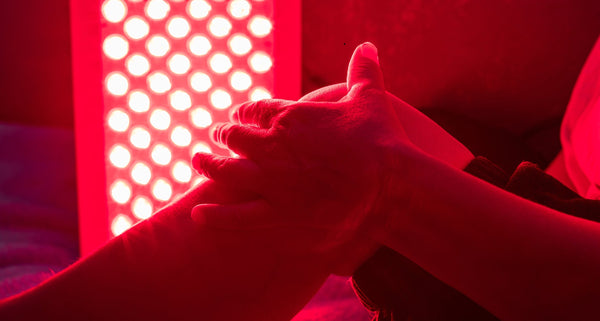Can Earthing Benefit Individuals with PTSD?

Story with compliments from The Earthing Institute
Post-traumatic stress disorder (PTSD) affects many individuals after episodes of shocking, scary, or dangerous events, such as military combat, natural disasters, terrorist attacks, major accidents, sexual assaults, and a sudden, unexpected death of a loved one.
Chronic symptoms vary, and include depression, anger and being on edge, insomnia, loss of interest in normal activities and routines, difficulty concentrating, and recurrent flashbacks of the trauma. PTSD may trigger substance abuse and suicide.
PTSD has gained considerable notoriety due to its association with the indescribable stress involved with military combat. According to a 2015 article in JAMA Psychiatry, an estimated 19% of American Vietnam War veterans will have developed symptoms; for veterans in Iraq and Afghanistan, about 15%; among the general U.S. population, 8%.
Treatment for PTSD involves psychotherapy and medication. We believe that grounding offers a foundational strategy that could make conventional treatments work better by improving physical and mental health on a systemic basis.
Grounding, whether being outdoors barefoot or indoors connected to an Earthing product, has a natural defusing effect on stress. It reduces inflammation and related chronic pain. It improves blood flow, improves sleep, energy, and mood.
Here are some of the details:
- Grounding improves heart rate variability (HRV)
HRV is an important medical measurement that determines variations in heartbeat intervals and serves as a widely-used indicator of stress.
Stress causes an imbalance in the autonomic nervous system (ANS) that governs critical organs such as the heart, lungs, and digestion. Disruption of ANS function, as measured by reduced HRV, has been consistently associated with PTSD, as well as an increased risk for asthma, depression, cardiac arrhythmias, coronary artery spasm, and sudden death. What occurs here, in simple terms, is that stress keeps the nervous system overstimulated. Revved up. Over time, the toll on the body can be devastating.
Cardiologist and co-author of the Earthing book Stephen Sinatra, M.D., offers this perspective: “Exercise, tai chi, yoga, and meditation are examples of activities that improve ANS and HRV. You become more relaxed and you sleep better. This effect is precisely what many people report after they start Earthing.â€
Dr. Sinatra conducted a study published in 2011 documenting how Earthing improves HRV in adults. You can read about his research here. In 2017, researchers at Penn State University similarly demonstrated that Earthing improves HRV in hospitalized premature infants, increasing their autonomic balance and resilience, and potentially reducing their risk of complications. You can read about that study here.
- Grounding significantly and rapidly influences electrical activity of the brain and muscles
In the brain, there is an overall decrease in activity at all frequencies, including the part most closely associated with thinking. Earthing thus appears to calm down the overloaded mind. Regarding muscle function, Earthing re-establishes a normal level of tension (reducing tension where there is too much, and increasing it where there is too little).
The body operates electrically, including your brain and muscles. Several studies – done in 2006, 2007, 2010, 2011 and 2012 − provide details as to how grounding helps to rapidly promote normalization in your nervous system.
- Grounding helps normalize the stress hormone cortisol
In 2004, the first published Earthing study showed that sleeping grounded promotes cortisol secretion in greater alignment with a natural, normal rhythm. The results, reported in the Journal of Alternative and Complementary Medicine, provided evidence as to why people commonly report sleeping better when they are grounded. You can read the study here. Ten of the 12 subjects in the study reported reductions in pain, particularly night-time pain, including musculoskeletal pain, GI problems, headaches, menstrual cramps and TMJ symptoms. Nine of the subjects reported feeling less emotional stress such as anxiety, depression, and irritability.
Among other problems, abnormal cortisol levels are associated with insomnia, a stress-related disorder that affects some 70 million Americans. Sleep difficulties are common among people with PTSD.
- Grounding uplifts mood
A 2014 study in the online journal Psychological Reports documented that Earthing improved blood flow throughout the body as well as mood…within an hour.
In a 2012 wellness conference for women, 100 attendees were grounded for an hour during a lecture. At the end of that time, the women were asked to fill out a questionnaire. Among the results was that 82 percent felt their mood had improved, by an average of about 40 percent.
- Grounding reduces inflammation
Chronic inflammation is a causative factor of pain and a causative or aggravating factor of virtually all chronic and aging-related diseases. The primary Earthing hypothesis is that connecting the body to the Earth enables free electrons from the Earth’s surface to spread throughout the body, where they exert powerful antioxidant/anti-inflammatory/analgesic effects. The influence on auto-immune and pain-related conditions, as well as healing from wounds and injury, is significant. The grounding effect on inflammation is explained in this article.
According to Tracy Latz, M.D., an integrative psychiatrist in Mooresville, NC, grounding can definitely be beneficial for individuals with anxiety issues, including PTSD, generalized anxiety disorder, and panic disorder).
“There is an improved sense of safety and improved sleep,†says Dr. Latz, who recommends grounding to her patients. “By improving sleep, Earthing can help normalize serotonin levels in the brain as it decreases cortisol (an anxiety-inducing hormone). When cortisol levels are high, there is a tendency to go into ‘fight-or-flight’/panic responses to stressful situations and become more easily angered or irritable. As cortisol levels decrease and stabilize, we become more centered, peaceful and calm. In short, we get more easily into our heart and have more compassion for our self as well as for others.
“For patients with depression, Earthing can assist with stabilizing serotonin and this assists with decreasing crying spells, near-tearfulness, and obsessive/repetitive negative thoughts. When depressive symptoms decrease, energy levels improve and tolerance to stressful situations, pain, or discomfort improves.â€
When you add up the potential benefits for individuals with PTSD, it is clear that grounding is a practical, natural, and effortless strategy that may contribute significantly to quality of life. If you know somebody with PTSD, tell them to check out grounding. It requires no appointment, no medicine, no special routine. Just reconnecting to the Earth.




